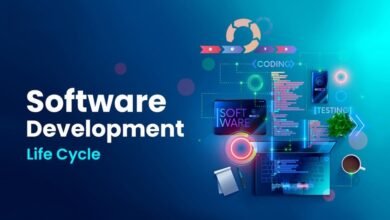
Top Benefits of AI in Healthcare You Didn’t Know
AI (artificial intelligence) can bring great benefits to the healthcare field, especially through research and cost reduction. In recent years, researchers have seen promising AI applications in radiology, drug discovery, and even genomics – but there are many more uses of this technology that people don’t know about. Here are the top five benefits of AI in healthcare that you probably didn’t know about until now.
Here Are the Top 8 Top Benefits of AI in Healthcare You Didn’t Know
1. Population health management
Population health management has been a significant trend for quite some time. It can help hospitals increase efficiency, improve the quality of care, and even manage costs. One area that is often overlooked when it comes to population health management is the impact artificial intelligence will have on this industry.
Artificial intelligence will most likely play a key role with population health management in the future as doctors and administrators make decisions about how to allocate limited resources to their population of patients.
Read More : 10 Ways Artificial Intelligence Can Make Your Mobile App More Engaging
2. AI-assisted surgery
AI-assisted surgery offers a number of benefits to the doctor, surgeon, and patient. One such benefit is that it helps to standardize pre-surgery assessment methods by requiring patients to answer a series of questions before any surgery. Another is that patients may feel less stressed during surgery because it will provide them with a high level of trust for their physicians due to the interactive nature of this particular technology.
Furthermore, there are concerns about errors on the part of surgeons due to long hours and fatigue which can be mitigated by use of AI assistants. Finally, some reports suggest that AI can shorten surgery time dramatically.
3. Faster patient recovery
Patients are happy to see the benefits of artificial intelligence technology take a hold of the healthcare industry. As more and more people see how technology can speed up recovery and make doctor visits less stressful, it becomes easier to understand why implementing AI is one of the best investments that hospitals can make.
Aside from the many different patient benefits, there are financial benefits as well. Rather than hiring new staff, hospitals that adopt this system will save money by cutting down on the number of staff they need to hire.
4. Improved healthcare accessibility
In an ever-evolving technological world, it’s not surprising that Artificial Intelligence (AI) is shaping healthcare. It helps with accessibility by providing physicians access to a plethora of medical knowledge, no matter their specialty. All information is curated for easy consumption, allowing clinicians to spend more time on critical decisions and hands-on tasks instead of collecting data.
Furthermore, the system can easily search through vast amounts of patient data and make correlations between symptoms. These correlations could be used to determine diagnoses or treatments so doctors can quickly identify patterns and possible causes for patient’s conditions.
5. Early diagnosis
AI is not just for facial recognition, it also provides benefits to medical professionals and patients alike. Early diagnosis is an obvious win-win situation. With the help of AI, diagnosis can be made faster and more accurate by quickly sifting through large amounts of information.
Medical professionals are likely to be able to tailor their treatment plans based on a more detailed understanding and detection of the disease processes at play, which would have taken months or years with the limited data available just ten years ago. Similarly, individuals can take advantage of these insights as well. Self-diagnosis may be possible before they even seek care from a doctor if they know what to look for.
6. Increased speed and reduced costs.
One major benefit of AI is that it speeds up the process considerably. The computer speeds up things like image processing and data analysis, which means doctors can get results faster. It also reduces the need for medical professionals. A smaller staff has less opportunity to make errors and provides greater efficiency, which leads to cost reductions. In this way, not only does AI reduce errors but it lowers costs as well.
Another benefit of AI is that it helps patients with chronic illnesses by managing their symptoms more effectively. With consistent monitoring through sensors on their bodies or daily feedback from a virtual health coach, they can be sure they’re getting the right treatment at the right time.
7. Data security
Data security is one of the main benefits that come with the use of artificial intelligence. Much like a traditional password, an AI program will have one or more safewords it uses to verify its identity. If any of these are mistyped, then the user has lost their data. It also takes into account privacy laws that require personal data to be anonymized after a specific amount of time – for example, within 24 hours. These rules apply to all forms of digital data, including audio and video recordings as well as text messages and social media posts.
8. Clinical decision making
Clinical decision making is a process that requires professionals to consider the patient’s symptoms, physical exam findings, lab data, imaging data and other clinical information, then decide which tests or treatments would be most appropriate for that specific patient. In contrast to this linear process, artificial intelligence has many applications that make it possible for non-clinicians to participate in clinical decision making as well.
Conclusion
The benefits of artificial intelligence (AI) in healthcare include fewer medical errors, easier scheduling, and better communication. These benefits help to simplify many aspects of running a healthcare business. However, they also raise concerns about whether doctors will lose their jobs or if patients will be at risk.
As AI becomes more prevalent, it will be imperative for health care providers to invest in AI solutions that work. Hire mobile app developers india and other AI experts who can help you come up with a plan to adopt the technology. Once you have a team working on your project, they can create mobile apps like Hometech that are key to both educating patients and boosting office productivity.




